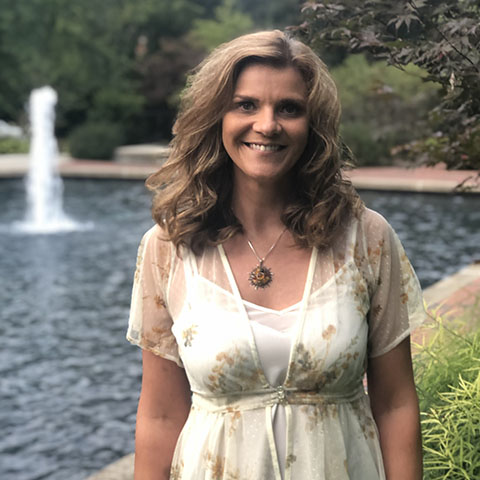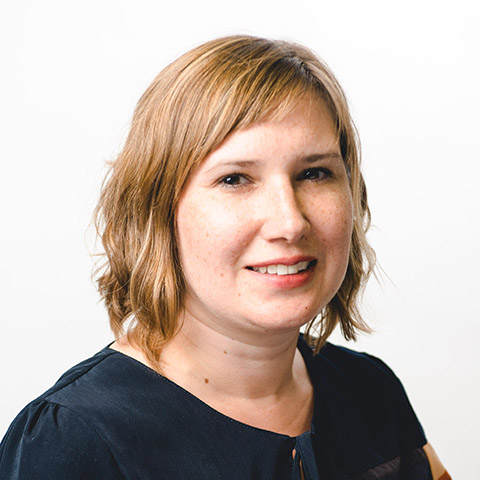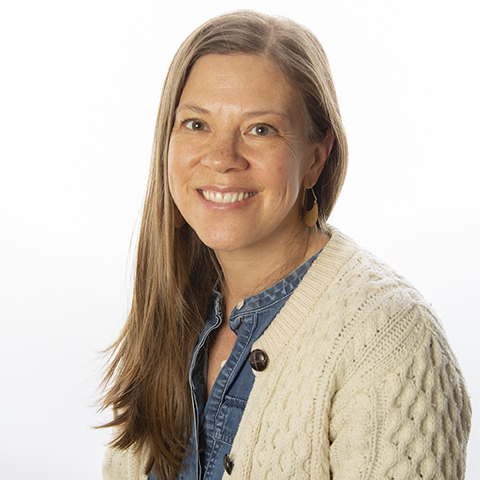Creative Writing
Master of Fine Arts
Write toward a more just world.
Regis University’s Mile-High MFA in Creative Writing is a low-residency program that lets you stay at your job and close to your family while pushing you to make time for writing. You’ll leave the program with a polished thesis manuscript, along with an action plan for putting your writing into practice in the world.
The Mile-High MFA provides students one-on-one instruction in poetry, fiction or creative nonfiction. Along with theory, workshops, seminars and readings by accomplished authors, the MFA program’s unique focus combines a thorough instruction in the craft and business of writing with the practical application of writing as a career.
Jesuit Vision
The Mile-High MFA celebrates the ways in which storytelling impacts our social and cultural lives, promotes social justice, and enacts change in the world. Our program is a place for writers from various backgrounds, genres, specializations, and aesthetics to come together and learn from one another in an open and supportive environment. We value writers who are socially engaged, who critically examine the assumptions and social privileges of discourse, and who seek to further a literature and community that respects and values diverse perspectives and authorships.
Genres
- Fiction (YA, Speculative, Literary, Flash, Hybrid)
- CNF (memoir, essays, historical narratives)
- Poetry (any/all)
Not sure if this is the creative writing program for you? Compare the Mile-High MFA in Creative Writing with the Master of Arts with specializations in Creative Writing and Literature

Heather Wright, Associate Director of Admissions
Hear from Heather as you explore college options. We’ll send details on scholarships, deadlines and financial aid.
Program Snapshot
Program Format
Online: Semester-based courses
On Campus: Two 10-day residencies in July and four 3-day symposiums (Friday, Saturday and Sunday)
Symposiums are in the fall and spring and can be remote or in person.
Credits for Completion
45 credit hours
Tuition for the 25-26 Academic Year
$811 per credit hour

The MFA program at Regis University has been a transformative return to the heart of why I write — rekindling my soul’s fire in a way few programs dare. In a rapidly shifting literary landscape shaped by social media, AI and post-Covid realities, Regis grounded me in the human experience, validating my voice and vision beyond market trends. More than craft or commerce, Regis offered and delivered a deep affirmation and creative liberation, building a sacred bond and agency between me as writer and the written word.
Dr. Darryl BryantCurrent Student, 2024-26

Degree Overview
The Mile-High MFA requires the successful completion of four 16-week writing semesters, two (semester start) or three (residency start) ten-day summer residencies (in person) and four three-day semester symposiums (in person or remotely). Students will begin with an Orientation at each residency and end with an MFA Degree Ceremony in their final residency. By their final residency or semester, students will have written and revised at least 150-250 pages of prose (fiction, nonfiction), 50-80 pages of poetry, or 90-120 pages of hybrid, or flash fiction (which becomes their Book-Length Thesis), along with eight Craft Reflections, a Thesis Proposal, a Critical Preface to their thesis, a Writing in the World Action Plan and an MFA Portfolio.

Writing in the World
During the mid-semester three-day symposiums (online or in person), you will attend seminars on the real-life applications of writing. By your final residency or semester, you’ll submit a Writing in the World Action Plan in which you describe how you will use your writing talents to contribute to your community, either in a professional capacity or through community outreach. Examples include running a writing workshop at a local prison or library, writing for a nonprofit, organizing a reading series or running an after-school “Teen Writers” workshop.

Optional Specialization
Students may opt into a specialization in Creative Writing Pedagogy. This specialization requires 12 additional credit hours, for a total of 57 credits. Students in this specialization take four three-credit 8-week online courses, including Writing as Social Action; Creative Writing in the Literature Classroom; Literary Criticism and Theory; and Writing and Rhetoric of Nonfiction, via Regis University’s MA in Literature and Creative Writing.

Career Preparedness
In addition to study in the major genres of poetry, fiction and creative nonfiction, the Mile-High MFA offers our student writers a Graduate Workshop exploring the publishing world, including market trends, working with agents, first book deals, query letters and more.
Meet the MFA Faculty
Our Core Faculty Model
The Mile-High MFA programs's Core Faculty model was designed to give graduate students continuity and in-depth instruction across all four remote, correspondence-based writing semesters.
Our faculty teach across genres – poetry, fiction and creative nonfiction – as well as specializations such as YA, speculative and literary writing. They hold PhDs in Literature and Creative Writing, making them highly adept at addressing a wide range of literary concerns, from traditional publishing and writing methods to more experimental forms and small-press options. They are award-winning authors in multiple genres with extensive teaching experience in both academic and non-profit settings. They have worked with writers of diverse backgrounds, ages and professional goals.
Our faculty will help you generate, revise and organize your creative work, while also guiding your professional writing goals – supporting your full experience as a writer both during the program and as you transition into life as an established writer.

BA/MFA Dual-Study Degree
The BA/MFA dual-study degree allows undergrads to earn a semester’s worth of credit towards their Master in Fine Arts in Creative Writing degree while completing undergraduate credits, so students can earn a master’s degree in three semesters instead of four.

Low-Residency Format
The low-residency format offers the flexibility of working from home without sacrificing academic rigor. Indeed, the low-residency format may be said to be more rigorous than a traditional residential MFA program, because, instead of attending workshops once a week and having one piece workshopped every four weeks, low-residency students work intensely on their writing for 20-25 hours per week and receive one-on-one feedback from their faculty mentor every four weeks on a greater volume of their work.

Our Alumni Accomplish Great Things
Our Mile-High MFA graduates accomplish great things, including publishing full-length books, but that's not all. Our alumni have developed and advanced their careers as K-12 teachers, technical writers, program and event directors, copyeditors, marketing and branding consultants, community creative writing instructors, professors in universities, independent writing consultants, grant writers, book coaches, sensitivity readers, book designers and more.
How to Apply
To apply to the Mile-High MFA Creative Writing program, you will need:
- Completed online application
- Official degree-bearing bachelor's transcript(s) from a regionally accredited university
- Undergraduate GPA of 3.0 or higher preferred
- 3.2 GPA or higher in English/writing classes preferred
- Demonstration of exceptional writing ability
- 8–12-page writing sample in your major genre (fiction, nonfiction or poetry)
- Two recommendation forms
- Essay
- Resume
The first step in the application process is to contact an admissions counselor, who can evaluate your prior learning credit, provide information regarding financial aid and tuition assistance and help you through the entire application process. A faculty phone or virtual interview may be required after review of your admissions application.
Tuition and Fees
Tuition for the 2025-2026 academic year: $811 per credit hour
Total program credits: 45
Tuition is one part of the overall cost of attendance, which includes all expenses students may have, including basic living costs. For more information about tuition, fees and your estimated cost of attendance, visit our Cost of Attendance for Adult Undergraduates and Graduate Students page. Tuition and fees are subject to change.
A $350 nonrefundable enrollment deposit is required to secure your place in the program, and will be applied toward your tuition.
Curious about financial aid options? Regis offers a variety of scholarships, grants, and other programs to help you pay for school. Visit Financial Aid to learn more.
A Culture of Excellence
The Master of Fine Arts in Creative Writing is offered by the English Department in Regis College.




